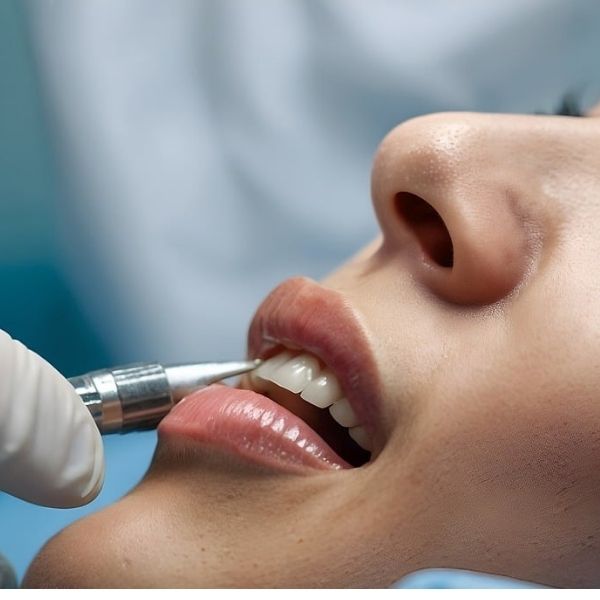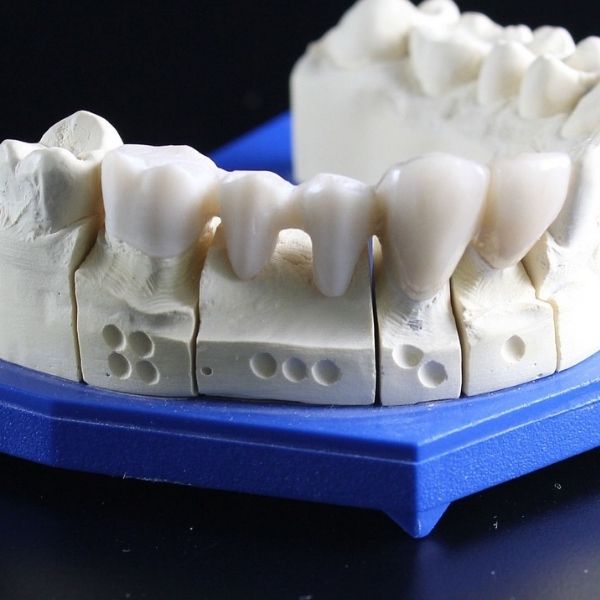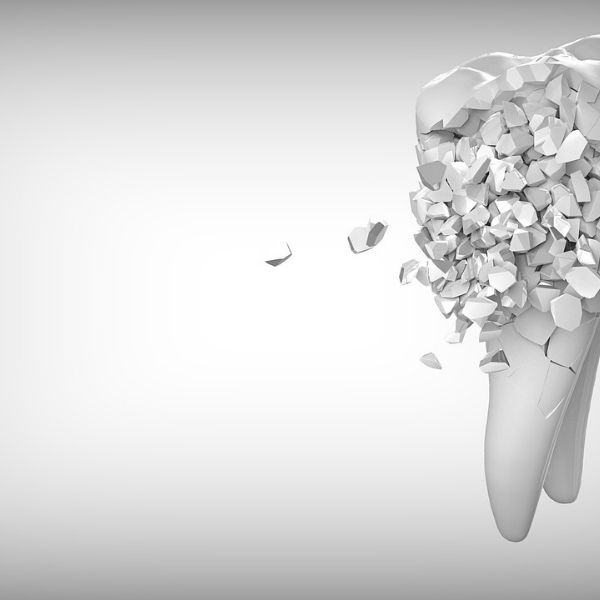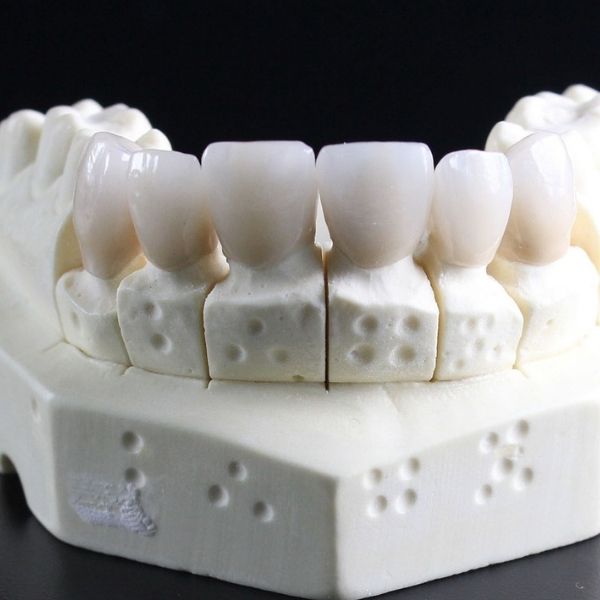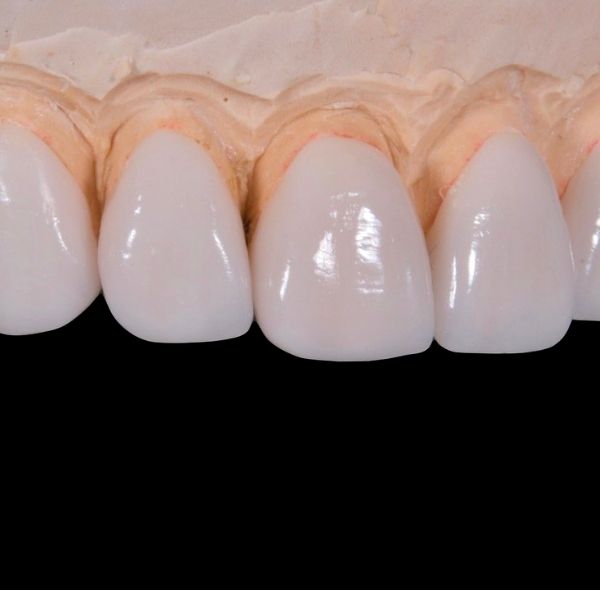The simple answer is no, you cannot whiten dental crowns with traditional teeth-whitening treatments. Here’s why:
- Crowns Are Made from Non-Porous Materials: Dental crowns, especially those made from porcelain or ceramic, are non-porous. This is different from natural teeth, which are porous and can absorb whitening agents. When you whiten your teeth, the bleaching agent penetrates the enamel and breaks down stains. However, you cannot whiten dental crowns: because the materials used for crowns—like porcelain—do not absorb these agents. As a result, whitening products will have no effect on their color.
- Crowns Do Not React to Whitening Treatments: Whitening products such as strips, gels, and in-office bleaching treatments are designed to work specifically on the natural enamel of teeth. Crowns, being made from materials that are not enamel, don’t react to these whitening treatments in the same way. Whether you use over-the-counter products or professional whitening treatments, you cannot whiten dental crowns with these methods.
- Stable Color of Crowns Porcelain crowns are designed to resist staining and discoloration. They don’t yellow or stain easily like natural teeth, which is one of the main advantages of crowns. However, this also means that you cannot whiten dental crowns as they are color-stable and won’t respond to whitening treatments.
Alternatives to Whitening Dental Crowns
Even though you can’t whiten dental crowns, there are other ways to improve the appearance of your smile if you’re unhappy with the color of your crowns.
-
Replace Your Dental Crowns
One of the most effective solutions if you’re looking to improve the appearance of your crowns is to replace them. Over time, crowns can become worn, discolored, or damaged. If your crowns no longer match the color of your natural teeth or you want to change their shade, your dentist can replace them with new, custom-made crowns.
- Custom Shade Matching: When replacing crowns, your dentist will carefully match the new crown to the current color of your natural teeth. If you’ve recently whitened your teeth, your dentist can create a crown that blends seamlessly with the new shade of your smile.
-
Whiten Your Natural Teeth to Match Your Crowns
While you can’t whiten dental crowns, another option is to whiten your natural teeth to match the color of your crowns. If you have crowns that blend well with your natural teeth but want them to be whiter, whitening your teeth can help achieve a more uniform appearance across your smile.
- Professional Teeth Whitening: In-office whitening treatments are often more effective than over-the-counter options. These treatments can help brighten your natural teeth and make them more closely match the color of your crowns.
-
Consider New Crowns with a Custom Shade
If you plan to replace your crowns or get crowns for the first time, it’s a good idea to whiten your teeth first. Once your teeth are whitened, your dentist can create crowns that match your desired shade, ensuring a consistent and natural-looking smile. Custom-shaded porcelain or ceramic crowns can be designed to blend perfectly with your newly whitened teeth.
Why Can’t Dental Crowns Be Whitened?
To understand why you can’t whiten dental crowns, it’s important to consider the materials used in crown fabrication. Here’s a breakdown of why dental crowns are resistant to whitening:
- Porcelain: Porcelain is a ceramic material that is dense and non-porous, making it resistant to staining. While this makes it an excellent material for long-lasting, aesthetically pleasing crowns, it also means that you can’t whiten dental crowns because they don’t absorb the whitening agents used in bleaching treatments.
- Ceramic: Like porcelain, ceramic crowns are also non-porous and won’t respond to bleaching treatments. Ceramic crowns are designed to resist staining, but they cannot be whitened.
- Metal Crowns: Crowns made of metal, such as gold, are not affected by whitening treatments. Metal crowns are durable and strong, but they do not discolor in the way natural teeth or porcelain crowns might. Since you can’t whiten dental crowns made from metal, it’s not necessary to attempt to whiten them.
- Porcelain-Fused-to-Metal Crowns: These crowns combine the strength of metal with the aesthetic benefits of porcelain. While the porcelain portion of the crown is resistant to staining, the metal part cannot be whitened. However, you cannot whiten dental crowns that are porcelain-fused-to-metal with traditional whitening treatments.
Tips for Maintaining the Appearance of Your Crowns
Even though you cannot whiten dental crowns, there are a few steps you can take to keep your crowns looking their best:
- Good Oral Hygiene: Brush your teeth and crowns regularly to prevent plaque buildup and stains from affecting your crowns. Use a soft-bristled toothbrush and non-abrasive toothpaste to avoid damaging the crown surface.
- Avoid Staining Foods and Drinks: While crowns are resistant to stains, it’s still a good idea to limit your consumption of foods and drinks that can stain your natural teeth, such as coffee, tea, and red wine.
- Regular Dental Checkups: Visit your dentist regularly to ensure your crowns are in good condition. If you notice any discoloration or wear, your dentist can help determine the best course of action.
In conclusion, you cannot whiten dental crowns with traditional whitening treatments. Crowns made from porcelain, ceramic, or metal alloys are non-porous and do not react to whitening agents. If you’re dissatisfied with the color of your crowns, the best solution may be to replace them with new ones that match the shade of your natural teeth. Alternatively, you can whiten your natural teeth to match the crowns or consider custom-shading new crowns for a seamless, uniform smile.
If you have dental crowns and are considering whitening, consult your dentist to explore the best options for enhancing the appearance of your smile. With the right care and treatment, your crowns can continue to give you a beautiful, long-lasting smile.

